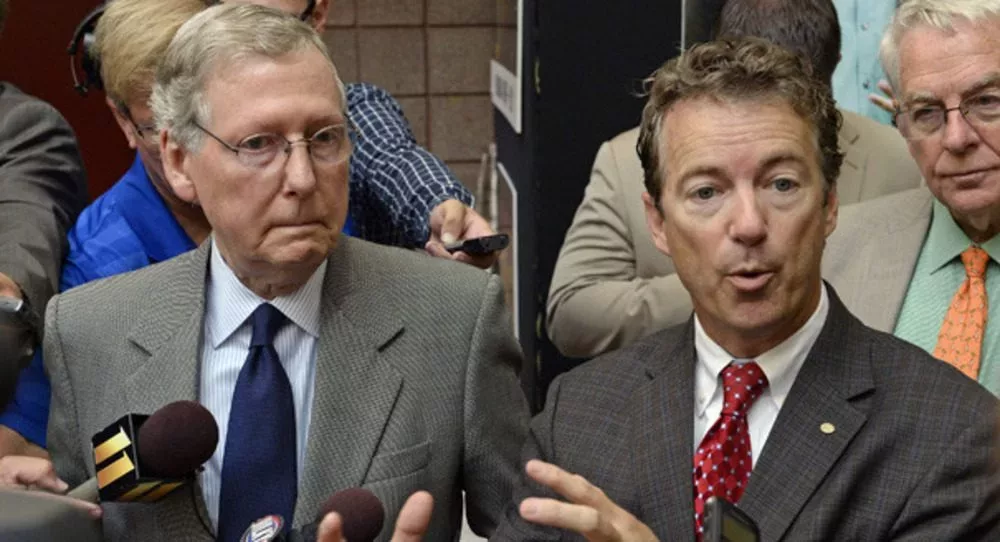
In the later hours of Wednesday, the United States Senate voted 51-48 in favor of a Democrat-led measure, revoking President Donald J. Trump’s Canadian tariffs.
All 47 Democrats supported, and four Republicans crossed the line — Susan Collins of Maine, Lisa Murkowski of Alaska, and Kentucky’s Rand Paul and Mitch McConnell.
Authored by Virginia Democrat Senator Tim Kaine, multiple outlets are reporting the bill won’t gain speed in the House.
However, NBC News and The Associated Press reported the measure was a “significant break in the party” from Trump, the same day he announced a new set of sweeping tariffs described as “Liberation Day.”
Kentucky, home to a $9 billion bourbon industry, has recently grappled with boycotts and reciprocal tariffs from Canada, and Paul told reporters Wednesday that “tariffs on Canada will threaten [the country] with a recession,” and that these coming measures were “a terrible, terrible idea.”
According to the Associated Press, Paul brought forth an “impassioned floor speech,” noting that conservatives “used to be uniformly opposed to raising taxes because [they] wanted the private marketplace, and for private individuals to keep more of their income.”
McConnell, meanwhile, released a 500-word response Wednesday night and Thursday morning, noting the last thing the country needed to do is “pick fights with friends,” further writing that “tariffs drive up the cost of goods and services,” and serve as “a tax on everyday working Americans.”
He cited the fact that 69,000 family farms in Kentucky sell their crops around the world, Kentuckians craft 95% of the world’s bourbon, and the state’s automotive and manufacturing industries rely on global supply chains.
At the bell’s closing Wednesday, the Dow Jones Industrial Average had plummeted more than 1,600 points — nearly 4% of its value.
Those who tout strong tariffs claim such efforts can bolster job creation and wage growth, reduce trade deficits, encourage domestic investment and innovation, improve national security and economic independence and buffer new, struggling industries against foreign competitors.
However, in 1930, the Smoot-Hawley Tariff Act raised import costs on some agricultural and industrial goods by roughly 20%, and it often gets the blame for worsening the Great Depression, and contributing to the ignition of World War II.





